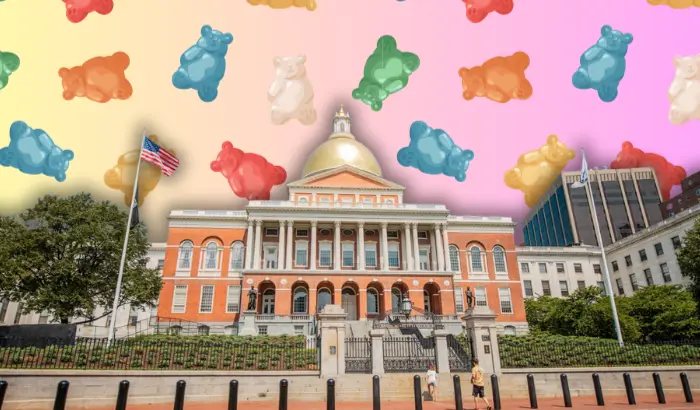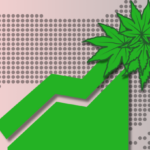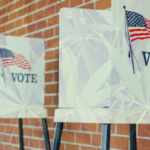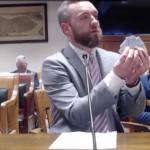
“Concerns around gas station weed keep me up at night.”
At this point, it is clear that one of the biggest stories of the year in Massachusetts cannabis is around hemp, and specifically hemp-derived products that can get you stoned and are widely available outside of the licensed dispensary system.
As we detailed in a recent five-part series on the tension and confusion mounting over hemp-derived THC products, there are no simple answers. Since the passage of the federal Agriculture Improvement Act (aka the Farm Bill) in 2018 removed hemp—a plant that is essentially the same as cannabis sativa minus the psychotropic effects—from the Controlled Substances Act, it’s been off to the races in this parallel arena. The result so far: a booming alternative weed world in which operations ranging from small kitchen setups to large industrial plants nationwide process CBD from said now-legal hemp into so-called synthetic cannabinoids that actually get you high, and then move those goods across state lines with amnesty.
With pressure building, mostly from Cannabis Control Commission-licensed businesses upset about unfair competition, state politicians have taken notice. At a legislative hearing in February, Sen. Michael Moore of Millbury asked the commissioner of the state Department of Agriculture Resources what she was doing about the spread of these unregulated products. As CommonWealth Beacon reported, “The commissioner, Ashley Randle, said her agency is aware of the problem and working with the Department of Public Health to put out new guidance.”
While hemp doesn’t fall under the jurisdiction of the Massachusetts Cannabis Control Commission, in late 2020, then-Gov. Charlie Baker signed a budget that included an amendment which opened the door for the sale of hemp products in adult-use cannabis dispensaries. Though hemp became legal in the Bay State in 2016 with the same successful ballot initiative that legalized cannabis, the former—and the cannabinoid that hemp is most relied on for, CBD—was initially left out of the profitable new dispensary marketplace overseen by the CCC.
That changed with the aforementioned amendment, which allowed CBD topicals and oils—and, eventually, other products as well—to be sold at dispensaries. In October 2021, the Massachusetts Department of Agricultural Resources (MDAR) announced that Bay State hemp farmers licensed by MDAR can also sell smokable CBD flower to CCC-licensed retailers. And in October 2023, the CCC and MDAR finally released a long-promised joint bulletin outlining necessary information for licensed Marijuana Establishments and Medical Marijuana Treatment Centers selling hemp products. Among the rules: these companies “can only obtain hemp from MDAR Licensees,” they “can only obtain certain hemp or hemp products if labeled and tested appropriately by MDAR standards,” and “the final Marijuana Product [made using hemp] is also subject to Commission testing and labeling standards.”
But now, with the explosion of unregulated products across the state and hemp-derived THC drinks even showing up in chain liquor stores, lawmakers, as well as MDAR and the CCC, are taking another look at all these intersecting issues. In one case earlier this month, MDAR even sideswiped one of its licensees, a wholesaler of minor cannabinoids, “commanding [the company] to destroy any and all THC-V products and stop its transfer.” That’s unrelated to concerns about gummies sold at gas stations via unlicensed out-of-state operators; still, all these subtopics are simultaneously swirling, and may turn up in testimonies at an upcoming Joint Oversight Hearing on Hemp Regulation on Beacon Hill on June 11.
In preparing for that hearing during today’s public meeting, CCC Director of Government Affairs and Policy Matt Giancola ran through some of the agency’s current guidance on hemp, which was updated in 2022, including: “Raw hemp must be accompanied by a Certificate of Analysis (COA) issued by a Commission-licensed Independent Testing Laboratory that indicates the hemp product passed the full-panel testing standards for Marijuana Products.”
With the legislature’s Cannabis Policy and Agriculture Committees “seeking information on how various agencies interact with Hemp and Hemp Products,” Giancola noted that the CCC can adopt its own motion “to formally participate in the hearing.” To that end, he engaged Commissioner Kimberly Roy, who already planned to speak in her own individual capacity.
“As a citizen, and as a commissioner, I have concerns, and I have heard from many of our licensees that it is impacting them greatly,” Roy said. “It’s a phenomenon known as gas station weed—these are hemp products that are unregulated, that are untested, that children can buy. … I feel if I am given an opportunity in front of this panel, I would be remiss—not only as a citizen, but as a commissioner sitting in the public health seat—to not address this. These concerns around this gas station weed keep me up at night.”
Commissioner Bruce Stebbins added, “All of us have heard from various licensees about the availability of these … intoxicating hemp products.”
Roy read the specific motion language into the record, making official the body’s intent “to formally participate in the [joint oversight] hearing on hemp regulation and further authorize staff and commissioners to develop responsive information for the joint committee’s review. Testimony will include an overview of the commission’s guidance on hemp, any potential requested data, and feedback the agency has [received] from stakeholder licensees regarding have products.”
In her part, Acting CCC Chair Ava Callender Concepcion said the statement should reflect the current limitations of cannabis agency staff, and clarify that the commission has no jurisdiction over many of the kinds of products that will likely be impugned at the upcoming hearing.
“I do want to incorporate something that talks about the limited resources that we do have, and the work that goes into the regulated products that are on the market,” Concepcion said.
























